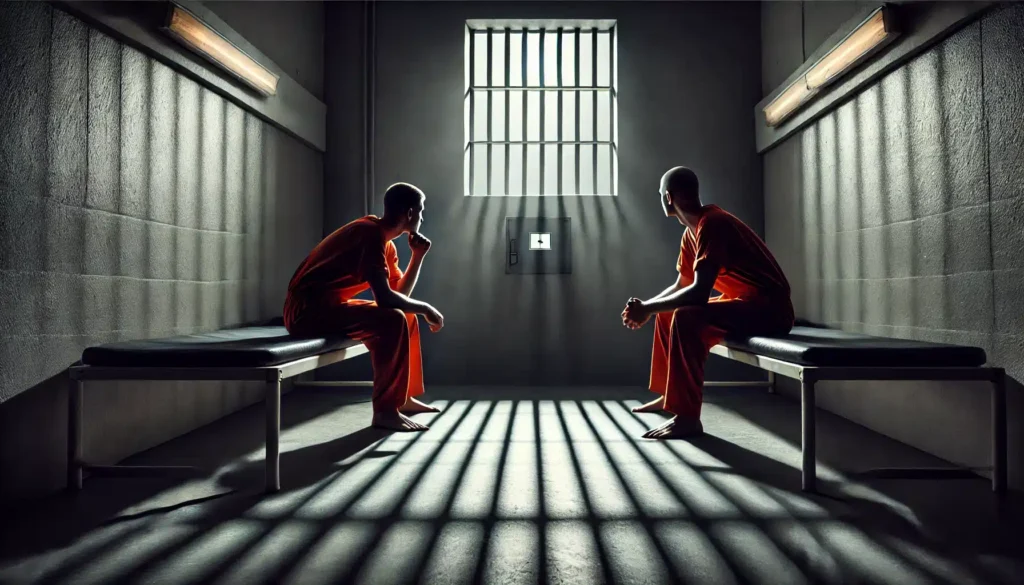Huron County Prosecutor Tim Rutkowski warns Michigan lawmakers that eliminating “Truth in Sentencing” will jeopardize public safety and harm victims of crime.
Ending Truth in Sentencing Sparks Controversy
Huron County Prosecutor Tim Rutkowski has issued a strong warning against proposed legislation in Michigan that would eliminate the state’s Truth in Sentencing law. The change would allow inmates to earn “productivity credits,” reducing their prison sentences. Rutkowski argues the bill undermines public safety, disregards victims’ rights, and fails to deliver promised cost savings.
What Is Michigan’s Truth in Sentencing Law?

Michigan’s Truth in Sentencing law, enacted in 2000, mandates that inmates serve their entire minimum sentence before becoming eligible for parole. This provides certainty for crime victims, ensuring that offenders serve the full time handed down by judges. Before this law, inmates could be released early for “good time” credits, a system Rutkowski says created inconsistency and risked public safety.
Rutkowski highlights cases before 2000 when offenders were released early due to good time credits and committed new crimes. He believes the current system balances justice for victims with accountability for offenders.
Proposed Productivity Credits Draw Criticism
The new legislation would reintroduce early release credits under the guise of “productivity credits.” According to Rutkowski, this change could allow prisoners to earn reduced sentences by participating in prison programs. He contends that such incentives are unnecessary, as 96% of Michigan inmates already engage in programming to qualify for parole under current law. The remaining 4%, he says, should not dictate a shift in policy that endangers public safety.
Rutkowski and the Prosecuting Attorneys Association of Michigan (PAAM) argue that the proposed law falsely promises to reduce Michigan’s prison population and cut costs. Data from the Michigan Department of Corrections (MDOC) show a decline in the prison population from over 50,000 in 2007 to approximately 33,000 today, yet the department’s $2 billion budget remains unchanged. Rutkowski contends the productivity credit system is unnecessary and ineffective for fiscal savings.
Violent Offenders Could Benefit from Early Release
Rutkowski raises concerns about the types of offenders who could benefit from early release. He states that 80% of Michigan’s prison population is incarcerated for assaultive crimes, including murder, robbery, and sexual assault. “Michigan will not be safer with the implementation of productivity credits,” Rutkowski writes. “Our society will be at more risk with the release of prisoners before the completion of their sentences.”
Victims, Rutkowski argues, will feel betrayed if offenders serve less than their original sentences. The judicial system’s integrity depends on honoring the sentences handed down in court, he says.
A Call to Action for Michigan Residents
Rutkowski urges Michigan residents to contact their state senators and representatives to oppose the legislation. While the bill has been tabled for now, it is expected to resurface during the next legislative session. “This bill is not the right step to protect us from convicted offenders. It puts all of us at risk, and it will not make Michigan a safer place to live,” Rutkowski concludes.
The Broader Debate Over Sentencing Reform
The proposal reflects broader national debates about balancing criminal justice reform with public safety. Proponents argue that incentives like productivity credits reduce recidivism and overcrowding. Opponents, like Rutkowski, contend such reforms prioritize cost-cutting over community safety.
Related Developments and Local Impact
As Michigan debates this legislation, neighboring states’ experiences with similar reforms could provide useful context. Advocates for reform point to studies suggesting programming reduces recidivism, but critics say such systems are prone to abuse and undermine sentencing credibility.
Find More Interesting Feature Stories From ThumbWind
- Michigan Features: Unveiling the people, places, and events that make the Great Lake State unique, we’ll explore hidden gems and must-do activities.
- Weird Political News: A sarcastic and insightful take on official news released by government sources, Political Action Committees, and Public Officials from all over the US. All stories are true and sourced.
- Michigan News: News and events of Michigan’s Upper Thumb that are worth knowing in the region.
Your Turn – Like This, or Hate It – We Want to Hear From You
Please offer an insightful and thoughtful comment. Idiotic, profane, or threatening comments are removed. Consider sharing this story. Follow us to have other feature stories fill up your email from ThumbWind Publications.



